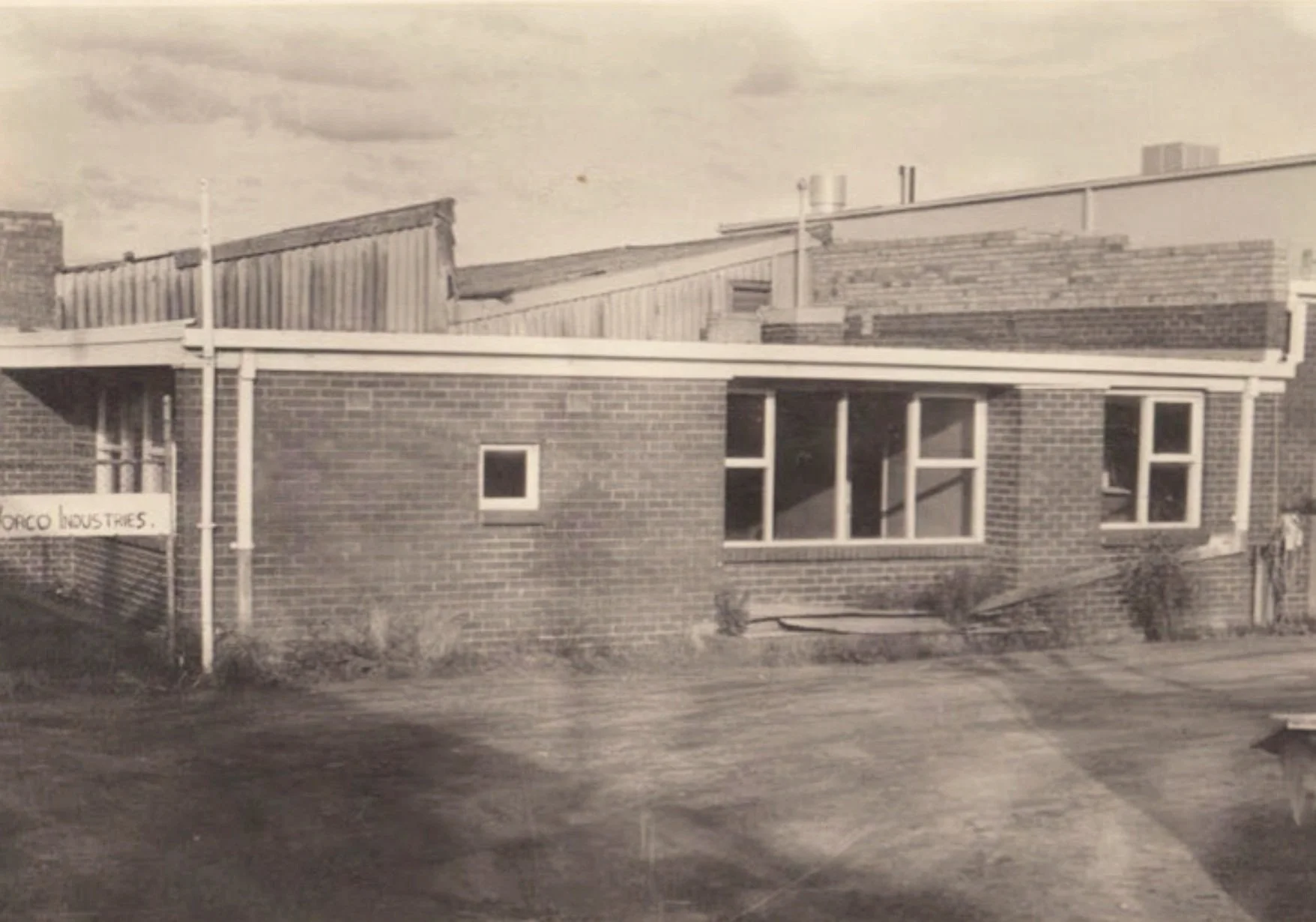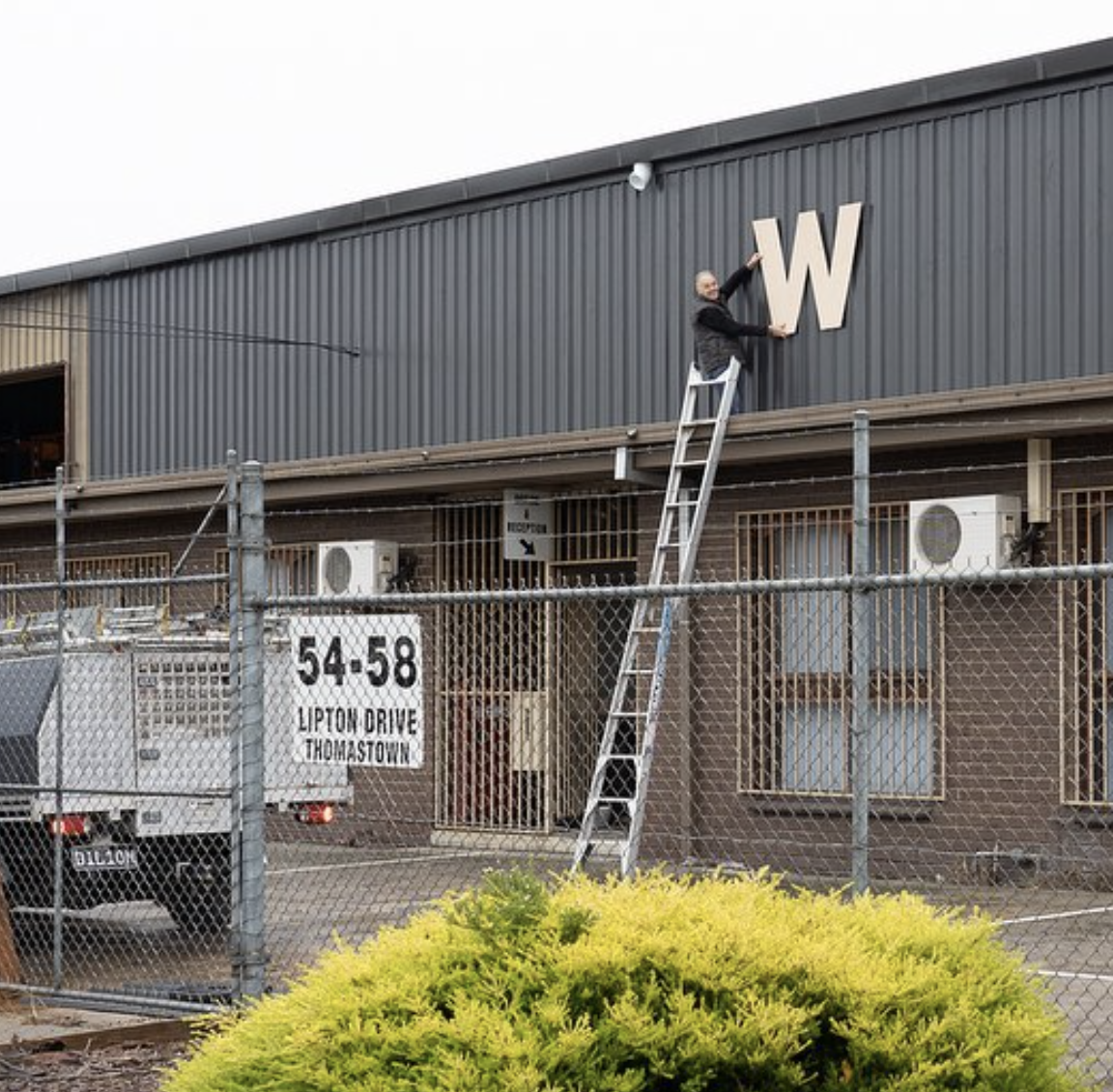The history of Worco
Worco’s Albert St. Preston premises c1985
WORCO, shorthand for ‘Community Work Society Co-operative Limited’, was founded at the tail-end of winter 1978 by a group of parishioners at St Mark’s church, an Anglican parish located in Camberwell, in Melbourne’s east. These parishioners were concerned about high rates of youth unemployment, which had risen sharply in most industrialised countries after the international oil crisis of 1973. By the late 1970s, it had become a significant problem in Melbourne.
One Sunday in 1978, a parish member decided to preach to the congregation about the problem of youth unemployment. Afterwards, a group of parishioners got together to talk about how they could help – and came up with the idea of Worco.
Worco’s founding members were a group of 12 well-off professionals, many of whom were semi-retired – some scientists, some business owners, and some doctors. They hoped to combine the skills they had gained in their various fields to help unemployed young people in their community.
Following a fruitful brainstorm that evening at St Mark’s church, they managed to secure a grant of $500 from the Hawthorn Community Chest, some significant monetary donations from parishioners, and the use of a former ice works factory from the Hawthorn Council.
Worco was to be a space in which young people could access the support and resources they needed to start a new business enterprise, which would ideally result in a regular income. It was described in many early articles as a ‘self-help’ organisation – the idea was that unemployed people would help themselves to earn money, rather than relying on unemployment benefits. The founding directors would oversee this activity and provide mentoring and business advice. Further, the directors planned on utilising their business connections to garner support from influential people and generate funding. By 8 June 1979, Worco was fully operational and the group registered itself as a co-operative under the Co-operative Housing Societies Act 1958.
By early 1979, the former ice works at 49 William Street, Hawthorn, was host to a stream of young people who utilised skills as diverse as cabinet making, carpet restoration, pâté making, puppetry, and papier-mâché to start their own businesses. Young unemployed people came and went, sometimes staying for weeks, sometimes months, some undertaking training from teachers who volunteered their time. The founding directors met regularly with Worco’s young participants to make sure their projects were running smoothly.
By 1985, when Worco moved to Preston, a former rag-factory, after being asked to vacate the Hawthorn premises, it had morphed into a shared workspace housing six small enterprises. The move marked a shift in how Worco was funded and organised. Soon, Worco became self-sufficient, moving away from reliance on outside grants and instead charging Worco members rent in exchange for space and a range of amenities and administrative services. Each member was required to become a shareholder of the co-operative, pay a monthly rent, and attend board meetings where they would have a chance to vote on issues affecting the day-to-day operation of the co-operative. In 2019 the owners of the factory in Preston, with whom Worco developed a warm and supportive relationship over the years, sold the property.
WORCO needed to find a new home.
adapted from Documenting the History of Worco Crafts Co-operative, by Molly KcKew, University of Melbourne forum, 2019.
[Molly McKew authored Worco’s official history to mark it’s 40th anniversary: WORCO. Community Work Co-operative Society Limited: A History 1979-2019.]
click to read in flip-book format
WORCO moves to new premises
In 2020 Worco and its members made the move to the current site at 54-58 Lipton Drv. Thomastown.
After having heard of the impending eviction of Worco from Albert St, the property was purchased by Antony Bignell, a long-time friend of a few of the older Worco members. A bespoke engineer and tool maker, inventor extraordinaire, philanthropist and champion of 3D photography, Tony was very supportive of the Worco concept and made the property available to the co-operative for a ‘special’ rental rate.
Tragically Tony Bignell died in January 2024, after a brief illness.
Now settled in to its new home, with its clear-span layout, a flat forklift-friendly floor, and a relatively leak-free roof, the new building is a major step up from the ‘rabbit warren’ conglomeration of dilapidated buildings at Albert St. Preston, some of which were prone to flooding, and was the curse of many a delivery driver as they skidded up the steep gravel driveway.
The organisational model still works. Worco remains a thriving community of people who are passionate about their craft. And in line with co-operative values, the members prioritise expert craftsmanship, quality products over profit. It’s a mutually supportive working environment and at the same time there is great respect for the autonomy and individuality of their fellow members.
Thanks to the selfless foresight of the ‘founding fathers’; the participation and enthusiasm of members – past and present – especially those who have served as office bearers and on the board of directors; and the extraordinary generosity of Tony Bignell and his estate, the future of Worco looks very bright.
In Memoriam
Tony Bignell 10.9.1956 – 13.1.2024




